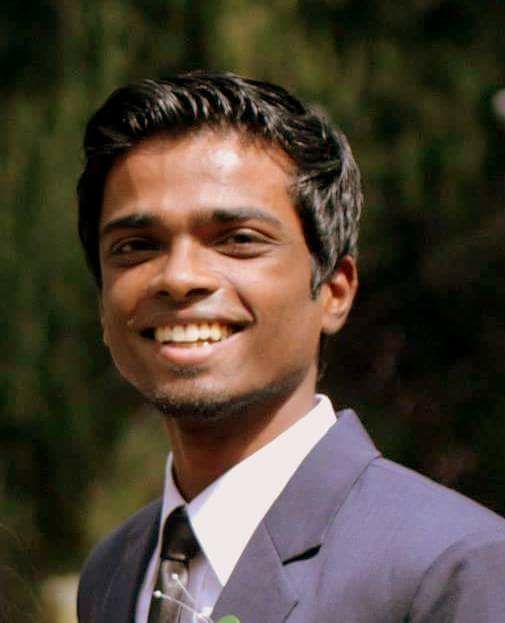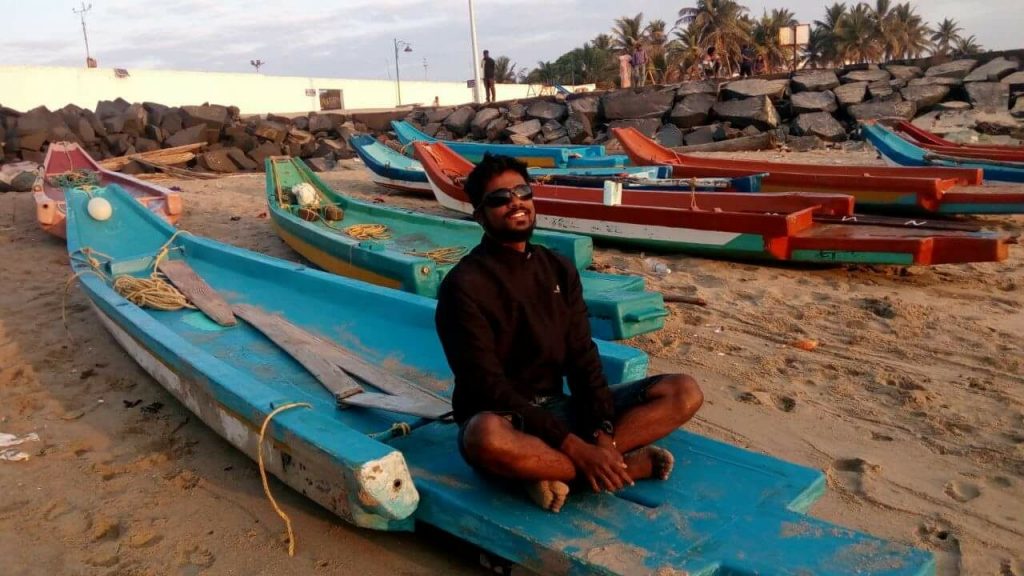At first glance, it seems entirely natural for a physiotherapist to focus on helping people who suffer from spinal cord injuries and disabilities. But to Johan Dhinakaran – it’s about more than just practising his trade. Johan’s true passion lies in inclusion and ensuring that persons with disabilities enjoy a superior quality of life.
The Early Lessons
Like many of us, Johan’s interest and passion for inclusion started when he came into contact with a person with a disability. A graduate of a small school in Pondicherry, Johan grew up in a very inclusive atmosphere – something that has really shaped his path.
He says, “I always studied in a class of not more than 10 people. It was a school that was taking in children with disabilities because they were not being admitted in other schools.”
He explains lightheartedly, “One of my classmates was someone who had autism. As one of the top graders in the class, one of my responsibilities was to make sure that he was in sync with the class, make sure he had completed his homework goals, etc. And when you’re in very close proximity to a person, you realise that certain things you do can actually aggravate the person. I’ve even been beaten up by him! At times he would come and hug me and show his affection.”
He adds, “I got to understand Aditya as a person, and his highs and lows. I got to know how to approach people in this situation. I think that’s what really set the foundation for me.”
Choosing A Holistic Path
Though he admits that his parents were initially upset that he rejected an MBBS seat to pursue Physiotherapy, Johan is thankful that he chose the path he is on. He says, “I actually went on to study at Christian Medical College (CMC). I did my undergraduate in Physical Therapy. But I’ve never thought of myself as only a physiotherapist. My parents wanted me to be a medical doctor. But then I got my admission in CMC. I looked at the college, and one thing that struck me is that I would get a holistic education at this college. I knew that I would grow here – not just as a professional – but as a person.”
Johan has never looked back! He explains, “It worked out really well because I got to interact with persons with spinal cord injuries, children with cerebral palsy, and various different medical conditions.”
He also got his first taste of service, “The interesting thing was that we had something called the service occupation where you had to work in places in need for two years. I went on to work in Fatehpur in Uttar Pradesh. I even got to start a physiotherapy department there. I learnt a lot about how you frame policies – things that you don’t generally learn in the medical profession. How does business in the department work? How do you get patients?”
Johan’s Fatehpur experience culminated in a collaboration with the international organisation, Wheels For The World. He says, “They wanted to have a wheelchair distribution campaign in Fatehpur. It was a team of 10 people, professionals who had been working in this field for 20-30 years. They had come from the US, so, I had to go into the community and make plans. I had to orchestrate an event from the patient’s point of view.”
It quickly became apparent that funding would be an issue. Johan says, “We started with a budget of 2.5 lakhs, and realised that it was capping off at 11. I was very firm about the fact that we didn’t need to go bankrupt to do good work. So, I said let’s see if we can crowdfund it – a lot of people would love to be a part of it. So, I got the documentary made, and contacted kids over a crowdfunding platform, and we were actually able to raise about 5 lakhs from people all over India.”
Moving Into A New Phase

It was a victory that put him on the radar of other organisations in the space, and his knack for crowdfunding has made him an invaluable asset to The Spinal Foundation, where he volunteers. The organisation, which has been working in the disability field for some time now, is a unique one. Primarily described as a self-help group, it aims to serve persons with spinal cord disabilities in a variety of ways. From providing emotional support to victims of spinal cord injuries to ensuring that they get the expert rehabilitation that they require – The Spinal Foundation is a multi-faceted entity, which touches many lives all over the country.
What makes them so unique? According to Johan, “It’s essentially run by persons with spinal cord injuries for persons with spinal cord injuries. They work on a volunteer basis.” He adds, “We want to be the single point of contact for anyone who has a spinal cord injury. If someone who is in the hospital has been diagnosed with spinal cord injuries, we recommend that the doctor ask this person to contact us. And then we tell them – go to this rehab centre, it’s really good. And from there we have something called the peer rehab model. This when somebody with a spinal cord injury trains other people with spinal cord injuries.”
For example, he says, “If someone is really good in a wheelchair – he has good motor skills – he then goes on to train other people. This is what we call peer rehab. From there on, we work with other organisations to get them other opportunities.”
Physiotherapy In India
Physiotherapy and rehabilitation are under-discussed topics in India, and the low pay and lack of respect afforded to the profession have deterred many from taking it up. Johan says, “India as a country has a very low dignity of labour. We applaud certain professions and, in our minds, we say these are the professions that make you stand up in society.”
He says, “I think it creates the whole atmosphere that says that certain jobs are better than others. And that is where the problem actually lies. Physiotherapy, unfortunately, falls under one of these categories. But the trend is changing right now from what I see. At a certain point, there’s only so much that a doctor can do and he has to hand it over to someone else.”
On A Personal Note

What is Johan’s role in the organisation? He says, “I’m a physiotherapist, and if the Spinal Foundation has a rehab centre and a community-based rehab project, I could say that I want to go and volunteer there.”
“I also volunteer in terms of networking and funding, and taking projects forward. For example, if the Spinal Foundation is coming up with a project, and they require me to take up the project and go network with other people, I would develop the project and ensure that it’s running smoothly.”
Johan is also the Inclusion Leader at the Ganga Trust, a nonprofit that does similar work as the Spinal Foundation. Currently, he’s collaborating on a special project: authoring and designing a visual guide to help prevent bedsores. This is especially relevant to patients with spinal cord injuries who often suffer from this ailment.
We love hearing and sharing the stories of others who are working to make our planet a more inclusive place, and Johan is definitely one of them. As the great Martin Luther King Jr. once said, “An individual has not started living until he can rise above the narrow confines of his individualistic concerns to the broader concerns of all humanity.” We’re so glad that Johan and others like him have taken that sentiment to heart!
KnowYourStar.com (KYS) interviewed Johan Dhinakaran as part of the India Inclusion Summit(IIS). IIS is a platform that brings awareness and drives the inclusion of specially-abled people in corporate organisations, schools, policymaking and NGOs. KYS is the official blogging partner for IIS, and backs the event wholeheartedly. Let’s build a more Inclusive India!
Liked reading this? Then you might also like to read Aditi Agrawal – Reinventing Play And Fun Learning With Gudgudee’s Inclusive Approach.
If there’s any story that needs to be told, we will tell it. Write to us at contact@knowyourstar.com with your story lead, or contact us on Facebook or Twitter.